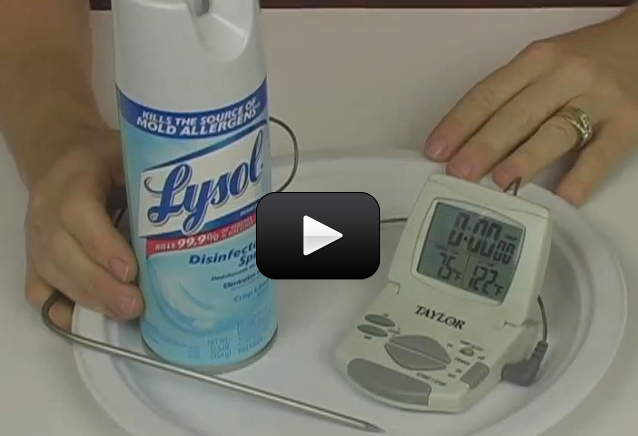In a typical air conditioning or refrigeration system, a liquid at high pressure is allowed to pass through a valve from a higher pressure to a lower pressure. As the liquid enters the lower pressure region, it changes from a liquid to a gas. This change causes a cooling effect. The liquid cools as it changes to a gas.
In a cooling system, such as a refrigerator or air conditioner, this cold gas is used to cool a box (refrigerator) or a room (air conditioner). Then the cool gas is forced through a compressor pump where it undergoes a warming effect and changes back to a liquid. This excess heat is removed before the liquid is expanded to a gas again. In an air conditioner, the excess heat is blown outside.
Special molecules containing chlorine, fluorine, and carbon atoms are used in most cooling systems. These Freon or chlorofluorocarbon (CFC) molecules are used because they are stable, nontoxic, and will not burn.
In recent years, scientists have discovered that these Freon or CFC molecules are damaging the earth’s ozone layer. Ozone molecules in the upper atmosphere block harmful ultraviolet radiation from reaching the earth. Because these CFC molecules are so stable they tend to stay in the atmosphere for many years, during which time they gradually spread to the upper atmosphere.
In the upper atmosphere, CFC molecules can release chlorine atoms. These atoms cause a chemical reaction that breaks apart ozone. One chlorofluorocarbon molecule may destroy thousands of ozone molecules. Scientists and engineers are looking for new methods of cooling and new gases that are less damaging to the ozone layer.
The main energy used in operating a cooling system is the energy required to run a compressor to force a gas to a higher pressure, where it will change back to a liquid. This energy is normally supplied by electricity or by burning natural gas to run a compressor pump. However, there are systems in which solar energy is used to supply the energy needed for cooling.
Please login or register to read the rest of this content.

